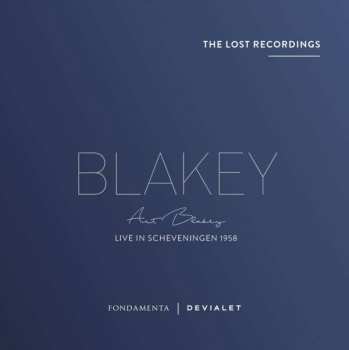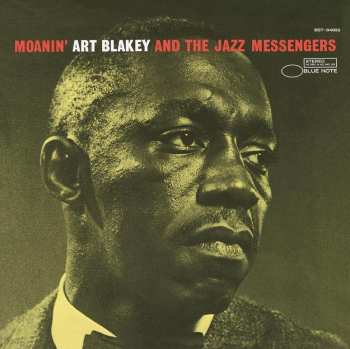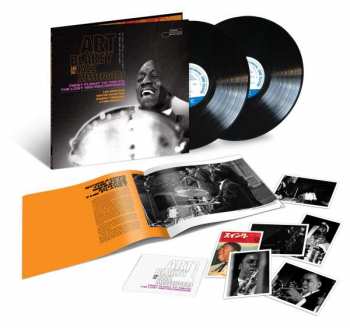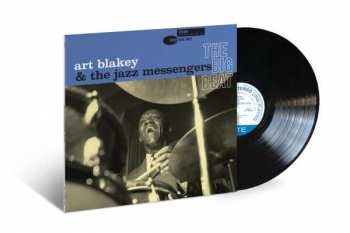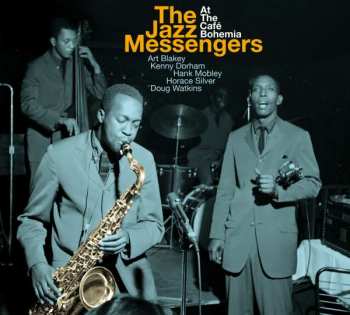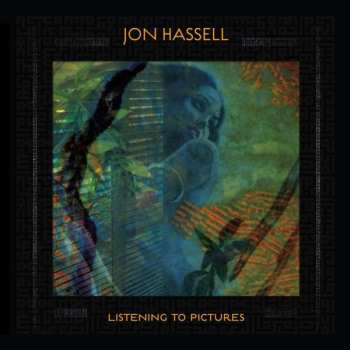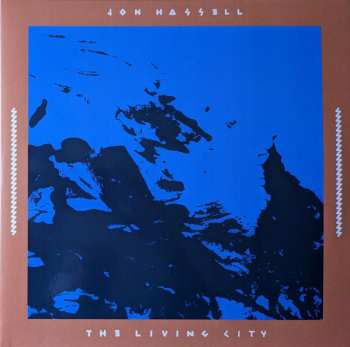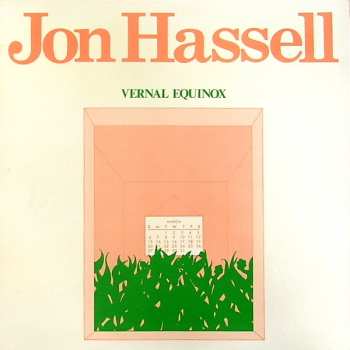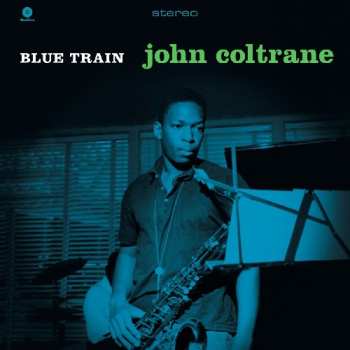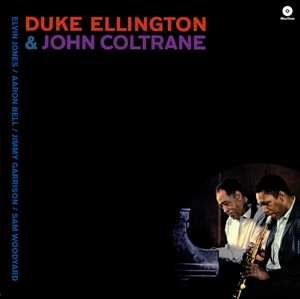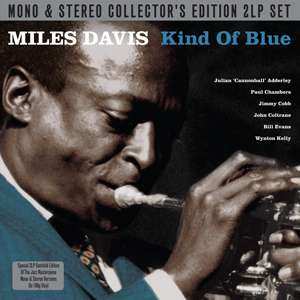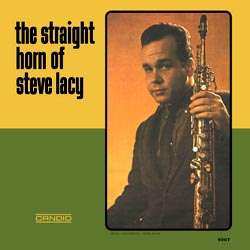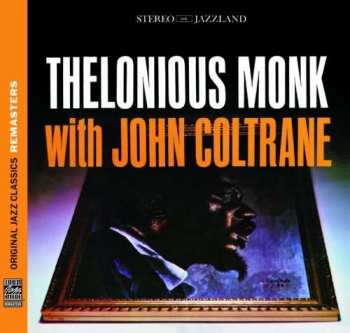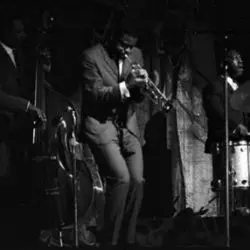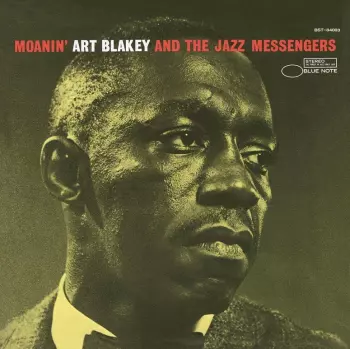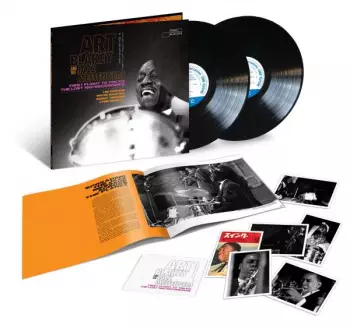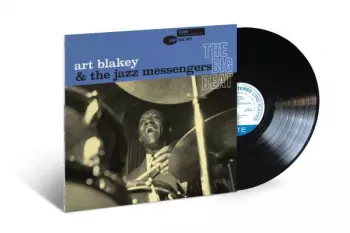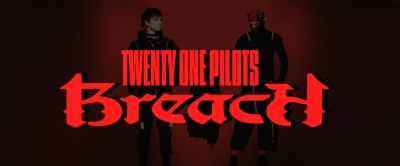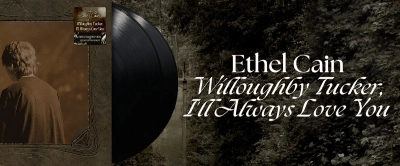Fondamenta | Devialet
10. settembre 2021
Francia
It was the evening of November 29, 1958. On the stage of the Kurhaus in Scheveningen, Art Blakey took the microphone and said: "I would like to take a moment to wish you a good evening on behalf of the Jazz Messengers and on my own behalf." Everyone present felt that this was a concert that would go down in history. Art Blakey had just turned th...
Stato
Nuovo
Disponibilità
Prezzo
31,99 €
Disponibilità
Dettagli
| Titolo | Live in Scheveningen 1958 |
| Artista | Art Blakey & The Jazz Messengers |
| Formato | 2x CD |
| Casa editrice | Fondamenta | Devialet |
| Paese di pubblicazione | Francia |
| Data di pubblicazione | 10. settembre 2021 |
| La prima uscita è stata | 2018 |
| Peso | 170 g |
| EAN | 0190759045121 |
| ID prodotto | 182060 |
| ID Discogs | 12965703 |
| Recensioni su Discogs |
4.6
|
It was the evening of November 29, 1958. On the stage of the Kurhaus in Scheveningen, Art Blakey took the microphone and said: "I would like to take a moment to wish you a good evening on behalf of the Jazz Messengers and on my own behalf." Everyone present felt that this was a concert that would go down in history. Art Blakey had just turned thirty-nine years old. For those who knew he had adopted the name Abdullah Ibn Buhaina in the late 1940s, he was "Bu". In 1954 he had co-founded the Jazz Messengers with pianist Horace Silver, but now he was leading the group himself, seeking out key talent, mentoring them and leading them to the top. The group naturally expanded through the late 1980s to include other artists such as Wayne Shorter, Clifford Brown, the Marsalis brothers and Keith Jarrett. But by 1958, the group was full of confidence, crowned with success and, above all, original. Pianist Bobby Timmons had just composed the legendary "Moanin'" and saxophonist Benny Golson his famous "Along Came Betty," compositions that the Jazz Messengers mixed with those of their famous colleagues Thelonious Monk, Charlie Parker and Dizzy Gillespie. That night the elite of the jazz world took their turn on stage, a performance that had been forgotten until this recording. Art opened the evening by introducing his line-up. Kind words for each individual, a little hyperbole, a little exaggerated praise - it was enough to create a light, intimate atmosphere. Throughout the evening, he then introduced each song, humorously promoting the Blue Note brand and making the audience laugh. While the band played, Art never stole the spotlight, however inventive the pulsing rhythms of his sticks were, appearing whenever he felt his magic would work. His legendary multiple bounces that followed the piano and sax solos added depth and color, broadened their horizons, made them stronger and brighter. Pianist Bobby Timmons, with his "rusty fingers," kicked off the concert with "Moanin'," while the rest of the band merely underscored the rhythm before fleshing it out. The tone was set: reflective yet joyful, simple, finely tuned. "Along Came Betty" followed. After a few minutes of tribute to Thelonious Monk, the Jazz Messengers launched into a big ballad composed by Benny Golson in memory of Clifford Brown. In "Now Is The Time," Art paid tribute to Charlie Parker, whom he called a prophet of modern jazz. The next track, "Whisper Not," is a work of subdued melancholy, elegance and emotion, tenderly rendered by Lee Morgan's trumpet. At this point, it was probably hard to imagine that the concert would end to such acclaim. Art, who Gillespie said was communicating with Africa, began a long solo with different rhythm sequences, and all the colours of the continent came pouring out, until at the end all the instruments exploded in fireworks, each one going off as the others faded away. With the last note, Art stood up and headed for the edge of the stage. One can imagine his teasing smile as he garnered applause and ended with the words "God bless you". More than thirty years later, when Art Blakey died, the New York Times quoted Max Roach as saying, "Art was an original. He's the only drummer whose rhythm I immediately recognize. And his distinctive style was amazing; we called him 'Thunder'."
Album comprende generi Jazz e Hard Bop.
Art Blakey & The Jazz Messengers
Da noi troverete tutto!
Più di
182 000
LP e
302 000
CD
in offerta
Sconto fedeltà fino a 5%
Per i clienti registrati
Rimanete aggiornati!
Ricerca più avanzata
della disponibilità e degli ordini
